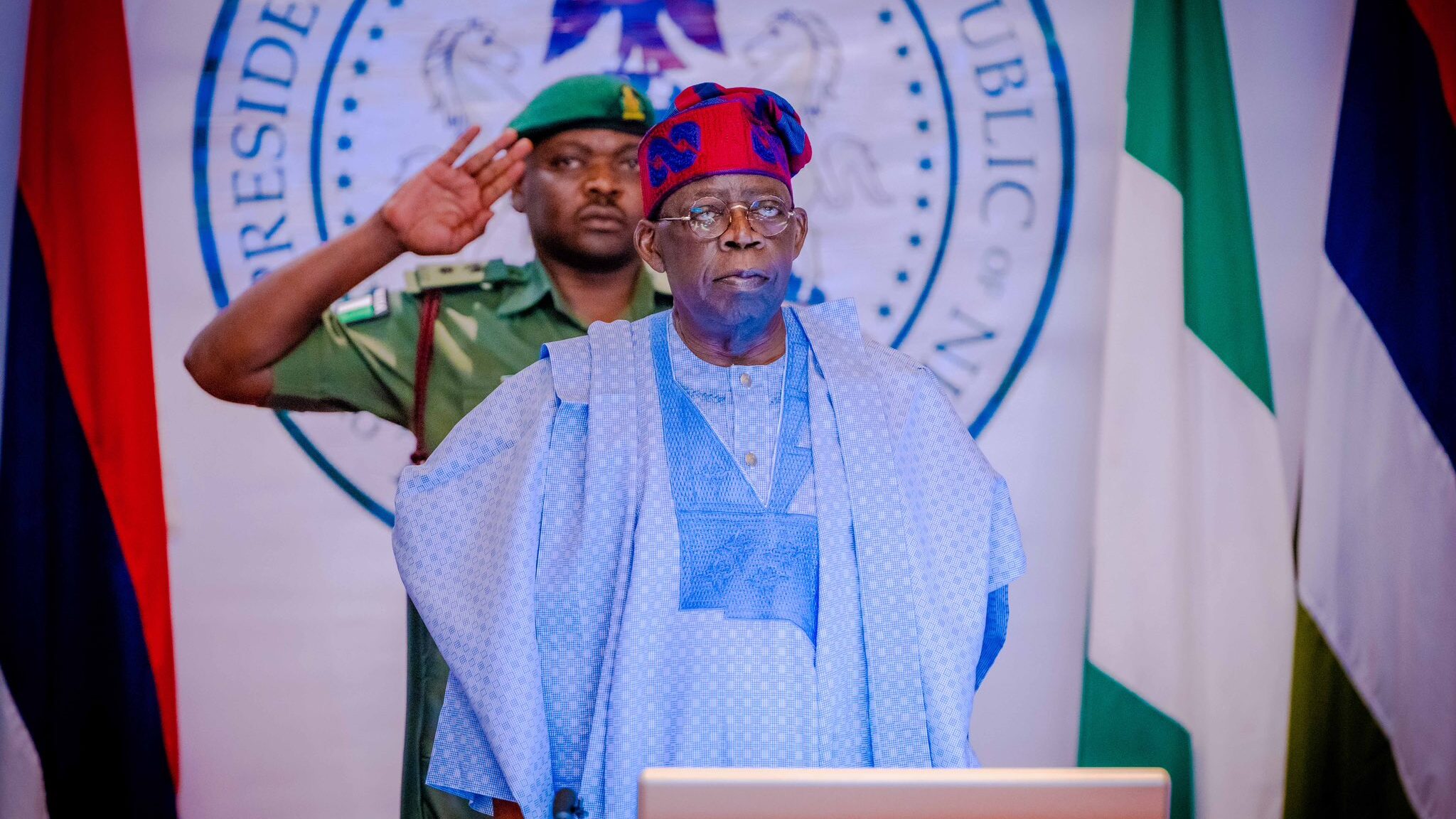By Magbagbeola Basit
On 24 October 2025, President Bola Tinubu announced a sweeping overhaul of the top leadership of Nigeria’s armed forces. He appointed Olufemi Oluyede as Chief of Defence Staff (CDS), W. Shaibu as Chief of Army Staff (COAS), S.K. Aneke as Chief of Air Staff, and I. Abbas as Chief of Naval Staff.
His statement: “I have approved changes … to further strengthen Nigeria’s national security architecture.”
Yet beneath this official language lies a deeper truth: the security apparatus of Nigeria has long been structured not primarily for the protection of its citizens, but for the protection of the regime—the office of power itself.
From Colonial Origins to Contemporary Purpose
The military and police forces in Nigeria are built on a foundation laid by colonial powers. Under the British, institutions such as the West African Frontier Force and colonial police were designed to secure colonial administration and imperial interests, not to serve local populations. Decades after independence, the face of the institutions has changed; the form remains largely the same. The logic of “protecting the state” often means “protecting those who govern the state.”
Consider the numbers: Nigeria’s police force is estimated at some 370,000 officers, and yet an unusually high proportion are allocated to VIP protection—senior political figures and persons of influence—rather than frontline crime-fighting. The military itself has 27 barracks nationwide, five of which lie in Abuja alone. What does this concentration suggest when the ‘frontline’ of conflict is often thousands of kilometres away in the North, the North-West and the Niger Delta?These structural and statistical oddities reflect the priority of regime protection over national protection.
ALSO READ
The Timing, the Changes and What They Suggest
While the official narrative frames the appointments as part of the government’s drive to combat insurgency, banditry, separatism and other security threats, the timing invites a different analysis.Three additional facts stand out:
The reshuffle comes amid persistent and high-profile security failures, yet previous chiefs remained in place until now.
The move coincides with rumours that a coup attempt had been detected within the military ranks. Several media outlets report that more than a dozen officers were arrested in September, including a brigadier general and a colonel.
Though the Defence Headquarters swiftly dismissed any coup plot as “false, malicious and intended to cause tension,” analysts say the timing of the leadership change suggests the move may have been triggered by regime panic rather than solely by battlefield logic.
Put together, the reshuffle appears less about improving “national security architecture” in the abstract, and more about consolidating command loyalty, quelling internal threats and reinforcing regime control.
The Coup Rumour: Real, Imagined or Instrumental?
The rumour of a coup attempt—whether true, half-true or manufactured—is central to understanding this shake-up. Reports link the cancellation of the 65th Independence Anniversary events on 1 October to the alleged plot.
The Defence HQ has denied that connection. Security analyst Confidence MacHarry told AFP: “This shake-up could thus be a means of taking the wind out of the sails of coup plotters who reportedly complained about career stagnation … or as a means of punishment for the military chiefs for their failure to improve security.”
For many Nigerians, the logic is clear: a regime under threat acts swiftly—not just to fight insurgents, but to protect itself.As one commentator on social media put it: “Exactly! What do you mean you sacked everyone except the one person who’s job it is to identify coups like this?”Whether or not the coup rumours are accurate, the effect is real. The regime has acted as if they were.
Why the Security Reform Alone Won’t Change the Game
Change in personnel can make headlines; change in purpose changes outcomes. But unless the fundamental orientation of the security system is revised, the result will be a fresh face on the same old mission.
Key issues remain: First is nstitutional mission: If the military’s unwritten priority is still regime protection, insurgency-prone communities will remain treated as afterthoughts.
Second is resource allocation: Thousands of troops and police officers remain focused on VIP protection, while vast swathes of terrain remain under insurgent control or bandit besiegement.
The next one is command loyalty versus accountability: Rapid replacement of chiefs may restore loyalty to the regime, but does little to hold the institution accountable to citizens.
The last one is public trust: When the public sees a shake-up triggered as much by internal politics as by war-front performance, cynicism deepens and cooperation with security forces erodes.
In short, deploying new generals addresses symptoms; changing who the generals serve addresses the disease.
What Should Be the Next Step?
If Nigeria is to move beyond symbolic gestures to meaningful reform, the following should be on the agenda: Transparent terms of reference for senior military appointments, with performance benchmarks linked to citizen security rather than solely to regime survival.
A redefined mandate for the armed forces and police that places citizen protection squarely at the centre—insurgents and urban crime must be tackled with equal seriousness to VIP security.
Civil-military oversight reform so that Parliament, independent bodies and civil society can review and challenge both policy and operations of the security institutions.
A full audit of the deployment and role of VIP protection units, reducing overlap and freeing up manpower for frontline policing and community security.
In conclusion, the sacking of the former service chiefs and the installation of new ones under President Tinubu may have been described as part of a mission to “strengthen our national security architecture.” But when viewed in context, the moves speak as loudly about protecting the throne as they do about protecting the nation.
Until the military and police are oriented towards the people rather than the regime, every shake-up will remain a change of uniforms, not a change of direction. Nigeria needs not just fresh generals; it needs a fresh purpose.
Magbagbeola Basit writes from the department of Mass Communication in the University of Maiduguri.
